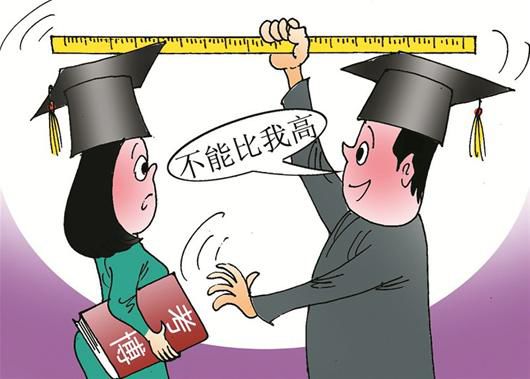(单词翻译:单击)
A newly-released report by China Academy of Social Sciences has shed some light on the impact of the changed educational structure on dating and marriage in China, Guangzhou Daily reported.
据《广州日报》报道,中国社会科学院最新发布了一项报告,该报告聚焦了教育结构变化导致国内婚姻市场失衡的社会现象。
From 2000 to 2010, the marriage rate for postgraduates continued to drop, the report said, with the rate for women falling below 50 percent in 2010.
统计结果显示,在2000年到2010年期间,男女研究生的结婚率都在显著下降。2010年,女研究生的结婚率下降到50%以下。
The situation is particularly striking in the group aged between 25 to 34.
在25到34岁这个适婚阶段下降尤其明显。

The change in the gender ratio on the top educational hierarchy might have contributed to the trend, according to the report.
报道显示,正是因为高等教育层次的男女比例发生了显著的变化,才导致这一趋势的出现。
Figures indicate that women with master degrees outnumbered men in the 20 to 29 age group by 2010.
统计结果表明,2010年,20至29岁年龄组的研究生群体中,女性的数量已经超过了男性。
The report explained that ideally both women and men would prefer their other halves with the same educational level, while most Chinese would expect the male to have a higher educational level than their female partners.
相关报告分析,正常来讲无论是男性还是女性都希望另一半与自己受教育水平相当,但大多数则更希望男方比女方学历更高。
This preference didn't change much during the past years, it was claimed.
事实上,上述趋势在过去几年内一直没有太大变化。
However, with a drop in the number of highly-educated men, young and well-educated women may have to lower their expectations, it was added.
然而,由于最近受教育水平较高的男性数量有所降低,其结果就导致年轻且受教育水平较高的女性不得不降低自己的择偶标准。


